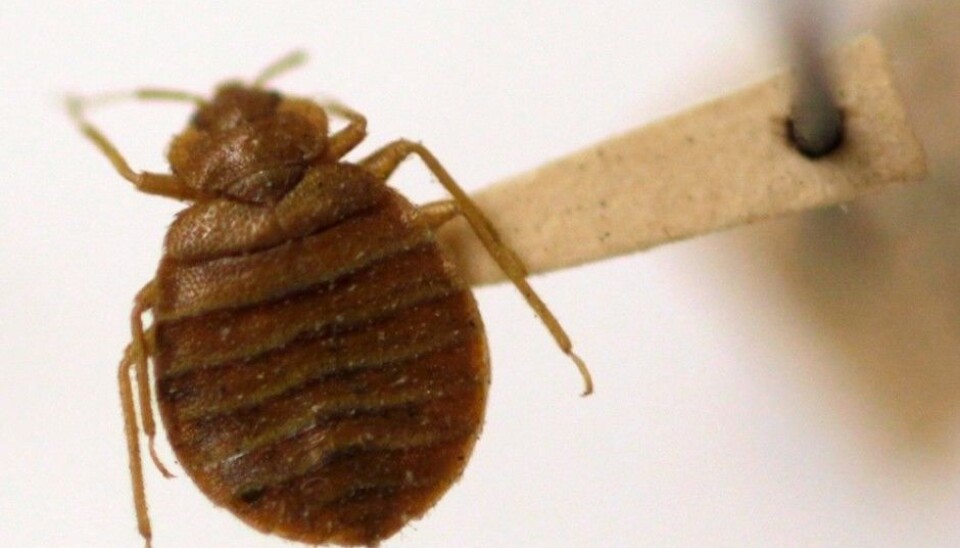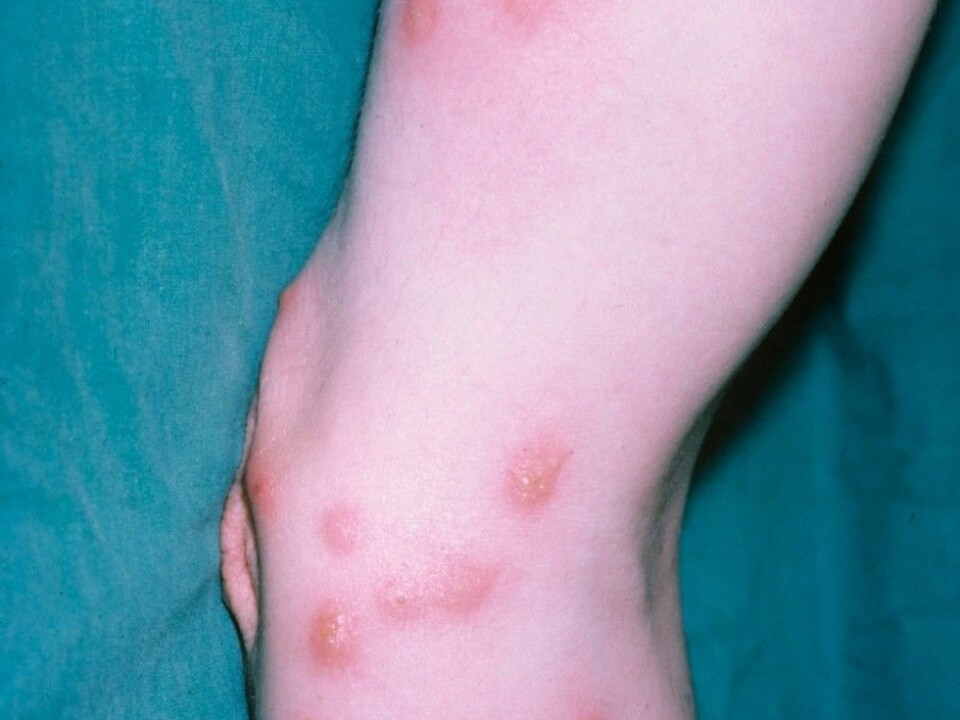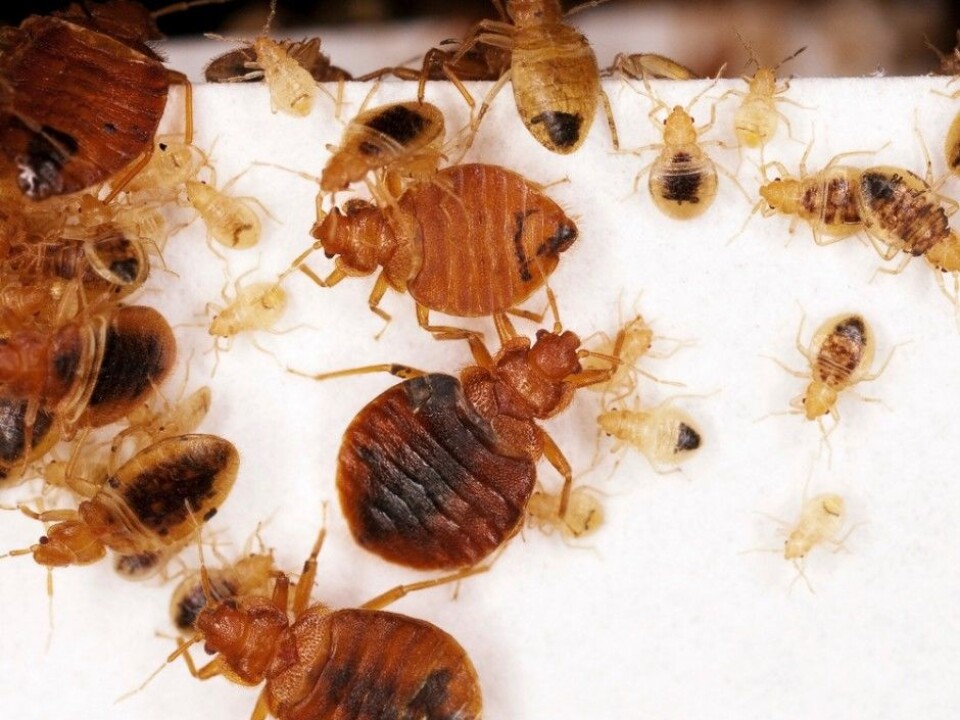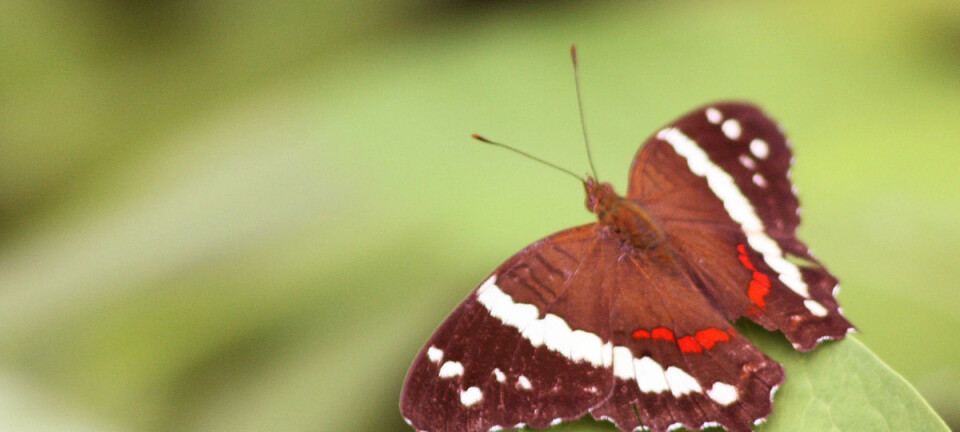
Unwanted hitchhikers find a home in Norway
It used to be that bedbugs were something Norwegians worried about in hotels in New York, London or San Francisco. Not any more.
Denne artikkelen er over ti år gammel og kan inneholde utdatert informasjon.
Norwegian health officials are noticing a troubling trend: reports of bedbugs in the country have quadrupled over the last several years, exceeding more than 1600 cases of bedbugs in 2013, the last year for which data are available.
And because bedbugs live exclusively on blood – preferably human blood – this has both health officials and health researchers worried.
Not actually harmless after all
It’s long been thought that while bedbugs are nasty and unpleasant, they are not dangerous.
Wrong.

As incidences of bedbug problems have skyrocketed internationally, researchers have uncovered some troubling findings.
American scientists recently reported that in a laboratory study, bedbugs were able to transmit a parasite called Trypanosoma cruzi to mice. This parasite causes Chagas disease, also known as American sleeping sickness. It can cause heart failure and death, with an estimated 10,000 deaths a year attributed to the illness.
Of course that is a study on mice, so it remains unclear if bedbugs can actually transmit the parasite to humans.
Nevertheless, another study from 2013 suggested that bedbugs can cause anemia, particularly if the bedbugs are feasting on children. Yet another study from 2014 found that people who have bedbugs in their bedrooms are at an increased risk of sleep problems, anxiety and depression.
Travel is trouble

Bjørn Arne Rukke conducts research at the Norwegian Institute of Public Health on ways to control bedbug infestations and is following the bedbug situation in Norway carefully. He says two reasons explain why bedbugs are increasingly a problem in the country.
“One reason is that Norwegians are travelling more and an increasing number of them come home with bedbugs in their suitcases,” he said, adding that it’s also possible to pick up bedbugs from hotels in Norway.
The other reason why bedbugs are an increasing problem is that they appear to have become resistant to pesticides, Rukke said.
Check your bed, move if you must
When Rukke checks into a hotel, he uses the flashlight on his mobile phone to check the bed, and looks around cracks and seams to search for the blood-sucking animals and the little flecks of bedbug poop they leave behind.

Bedbugs are a big problem in New York and London as well as other big cities where there is a high volume of travellers who may stay just a night or two. But bedbugs can also be found on tourist boats, airplanes, hospitals and in fitting rooms.
Rukke says if you find bedbugs in your hotel room, ask to be moved. If you find bedbugs in your new room, leave the hotel, he says.
Don’t unpack that bag
Making yourself at home in your hotel room might make it easier for bedbugs to make themselves at home in your luggage, Rukke said. The safest strategy is to keep your things in your luggage, and keep your luggage as far away from your bed as possible, he said.
If, when you return home, you suspect you might have an unwanted hitchhiker or two in your bag, wash your clothes in hot water, at least 60 degrees C. You can also freeze these critters to death, by putting any suspect items in a freezer at temperatures lower than -18 degrees C for a minimum of three full days.
But call in the professionals if you think you have a bedbug infestation in your home – the sooner the better, Rukke says.
Tough to combat
Rukke and his colleagues at the Norwegian Institute of Public Health have tried different approaches to combatting infestations of bedbugs.
They’ve tried heat, where bedbugs are exposed to three days of temperatures of 38.5 degrees C. This causes population numbers to drop. Another possibility is a type of mould that is not harmful to humans but that might be effective in combatting bedbugs, Rukke said.
But Rukke thinks it will be unlikely that his or any other research group is going to find a simple way to get rid of these nasty bloodsuckers. What will most likely succeed in the future is combining different approaches.
----------------------------
Based on an article by Siw Ellen Jakobsen, which can be read in Norwegian at forskning.no
Scientific links
- Susser et al: Mental health effects from urban bed bug infestations BJM 2014
- Salazar et al: Bed bugs as vectors of Trypanosoma cruzi. American Journal of Tropical Medicine and Hygiene, 2014
- Aak and Rukke: Bed bugs their blood sources and life history parameters, Medical and Veterinary Entomology, 2014

































